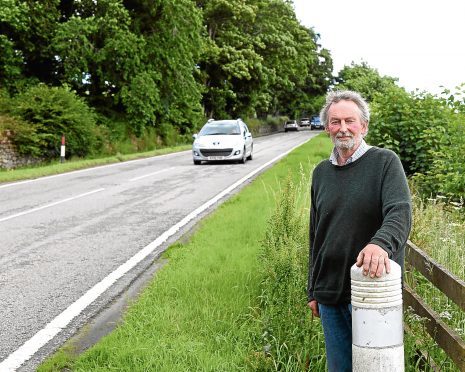Mental health is a topic which has traditionally been swept under the carpet and rarely discussed openly, so it is welcome to see a change in attitude over the last few years with a number of prominent people talking publicly about their struggles with mental illness and government and rural organisations taking the subject seriously.
The Scottish Government is now stepping up to the plate with the appointment of a mental health minister, the creation of a mental health strategy and a national strategy to tackle social isolation.
There have also been private initiatives and former MSP Jim Hume is to be congratulated in being the driving force behind the National Rural Mental Health Forum which now has more than 40 rural organisations as members, including the Scottish Tenant Farmers’ Association (STFA).
There will be very few families in rural areas who do not have a friend or relative who is suffering from mental illness of some sort, so it is reassuring to see increasing recognition of mental illness as an important issue in rural communities.
Mental health is of particular concern in the farming community where remoteness and isolation often lead to depression and anxiety.
The changing face of agriculture with mechanisation and technological advances has led to fewer and larger farms employing far less people and the end of traditional communal activities which used to see communities working together and supporting each other. We are also facing difficult times with the uncertainties of Brexit, reduced support payments and the prospect of lower commodity prices, as well natural challenges thrown up by climate change.
This will undoubtedly have a psychological impact on the farming community, especially on those who will find it hard to adapt to changing circumstances.
Although tenant farmers are usually resilient and efficient operators (after all there are ever-increasing annual rental payments to be met), they are more vulnerable to falling commodity prices and rising costs than owner occupiers and less able to find new diversified income streams.
Economic and financial worries can be compounded with the additional complication of poor landlord/tenant relationships which put enormous pressure on tenants and their families who see, not just their livelihoods, but also their homes under threat.
Continual pressure brought on by protracted disputes and Land Court cases frequently lead to mental and physical illness and in (fortunately rare) occasions suicide.
The tenant farming sector now has the benefit of a tenant farming commissioner whose main role is the improvement of relationships between landlords and tenants and his presence is already helping change the culture and lower tensions.
However, old habits die hard and we have recently seen some appalling behaviour towards tenant farmers at the end of their tenancies.
It has also been disappointing to hear of rent review situations where a landlord, who should know better, is demanding unreasonable and unsustainable rent increases, bound to be damaging in a post-Brexit scenario and, in doing so is prepared to use tactics belonging to a past era and condemned by industry-agreed guidelines.
Such practices are not only unacceptable, they are also stressful for those on the receiving end and, if attitudes do not change and this behaviour cease the tenant farming commissioner will have think of adding mental counselling to his portfolio.
Angus McCall farms at Culmaily Farm, near Golspie. He is an executive director at the Scottish Tenant Farmers’ Association
